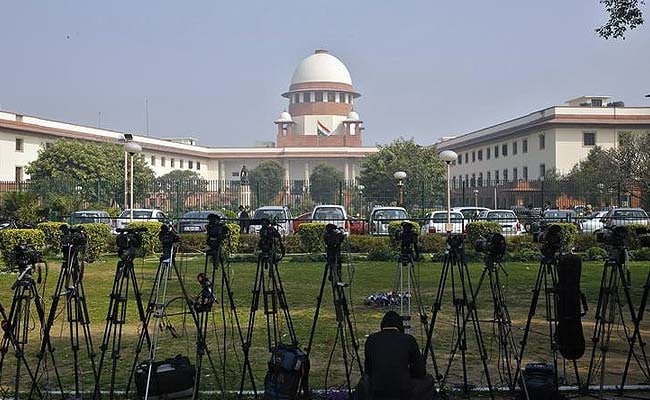
New Delhi:
The Supreme Court has reinforced its earlier view that "there should really be no reservation" in super speciality courses in medicine in the general interest of the country.
The top court also echoed with the observation made in other judgements that "the Centre and the State Governments shall seriously consider this aspect of the matter without delay and appropriate guidelines shall be evolved by the Indian Medical Council so as to keep the Super Specialities in medical education unreserved, open and free."
It said at a time when the 'privilege' of reservation is 'competing with eternity' an objective assessment of situation is required keeping national interest in mind.
"The fond hope has remained in the sphere of hope though there has been a progressive change. The said privilege remains unchanged, as if to compete with eternity.
"Therefore, we echo the same feeling and reiterate the aspirations of others so that authorities can objectively assess and approach the situation so that the national interest can become paramount. We do not intend to add anything in this regard," a bench of Justices Dipak Misra and PC Pant said.
The observations came while hearing a batch of appeals challenging the domicile based reservations in super speciality medical courses in Andhra Pradesh, Telangana and Tamil Nadu.
The court refused to interfere with the admission process in Andhra Pradesh and Telangana since a Presidential Order has created an exception and the constitutionality of this order had not been challenged.
It, however, agreed to examine on November 4 whether Tamil Nadu could do the same and allow this form of reservation in post-graduate courses.
Andhra Pradesh and Telangana have put reservation in place through a special privilege granted to it under Article 371-D of the Constitution and the Presidential Order.
Article 371 of the Constitution provides special provisions to protect the interests of people and resources of the state.
The top court also echoed with the observation made in other judgements that "the Centre and the State Governments shall seriously consider this aspect of the matter without delay and appropriate guidelines shall be evolved by the Indian Medical Council so as to keep the Super Specialities in medical education unreserved, open and free."
It said at a time when the 'privilege' of reservation is 'competing with eternity' an objective assessment of situation is required keeping national interest in mind.
"The fond hope has remained in the sphere of hope though there has been a progressive change. The said privilege remains unchanged, as if to compete with eternity.
"Therefore, we echo the same feeling and reiterate the aspirations of others so that authorities can objectively assess and approach the situation so that the national interest can become paramount. We do not intend to add anything in this regard," a bench of Justices Dipak Misra and PC Pant said.
The observations came while hearing a batch of appeals challenging the domicile based reservations in super speciality medical courses in Andhra Pradesh, Telangana and Tamil Nadu.
The court refused to interfere with the admission process in Andhra Pradesh and Telangana since a Presidential Order has created an exception and the constitutionality of this order had not been challenged.
It, however, agreed to examine on November 4 whether Tamil Nadu could do the same and allow this form of reservation in post-graduate courses.
Andhra Pradesh and Telangana have put reservation in place through a special privilege granted to it under Article 371-D of the Constitution and the Presidential Order.
Article 371 of the Constitution provides special provisions to protect the interests of people and resources of the state.
Track Latest News Live on NDTV.com and get news updates from India and around the world

